Irving Penh: Portraits of Phnom Penh’s riverside sellers
The vendors plying their trade on Phnom Penh's streets play an invaluable but under-appreciated role supporting life in the capital. But using their makeshift riverside studio, two photographers set out to place these overlooked workers in the spotlight
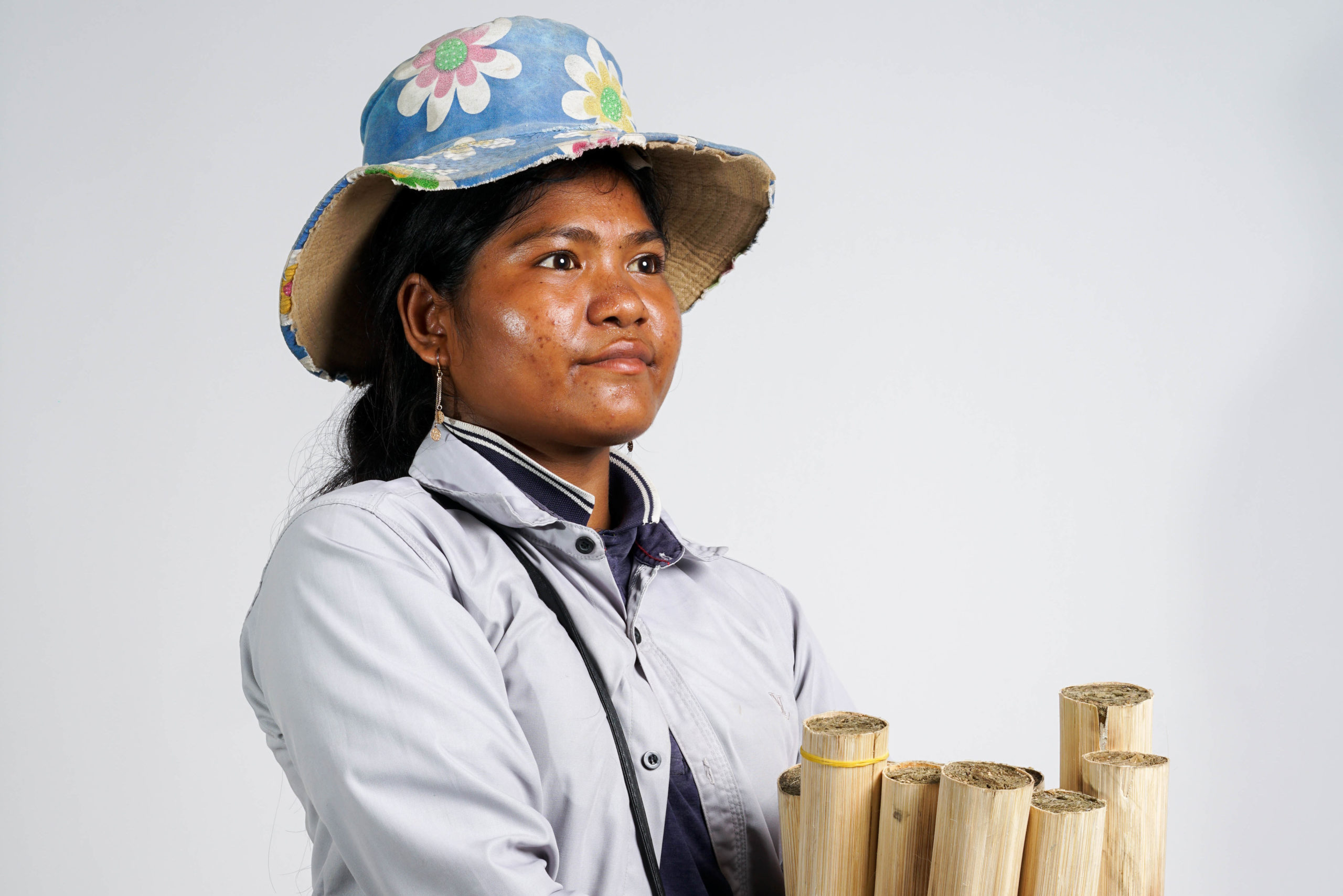
While Cambodia has remained insulated from the worst effects of the virus from a public health perspective, economically, the impact has been devastating.
In the capital, this downturn is perhaps most visible on Phnom Penh’s riverside – its low-cost hostels and hotels once the jump-off point for the Kingdom’s backpackers heading to the temples of Angkor or the beaches of Koh Rong.
While shuttered businesses and empty restaurants offer tangible and unmissable signs of the downturn, less observed is the effect on the street sellers and food vendors plying their trade on the capital’s waterfront, minus a large chunk of their clientele.
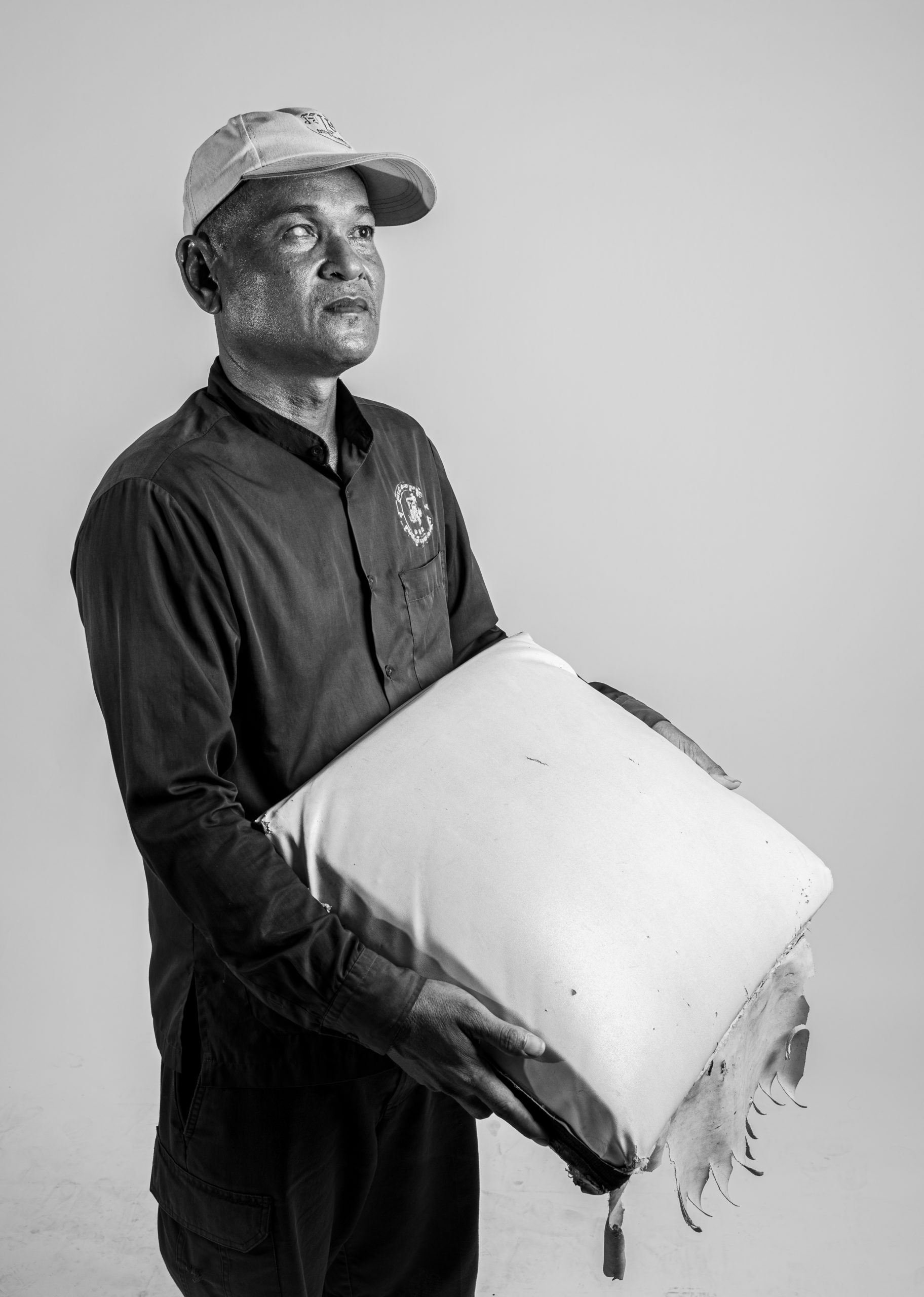
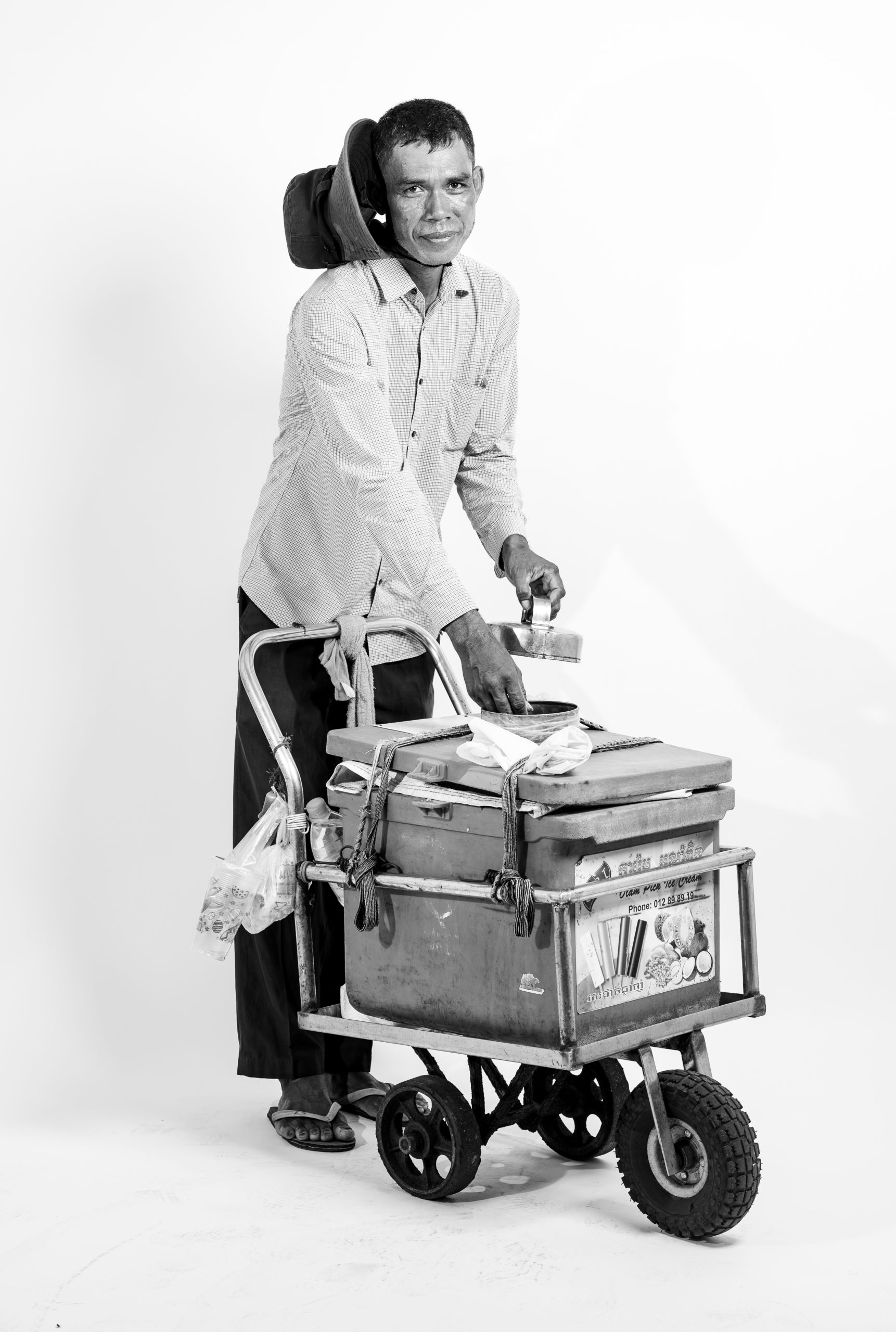
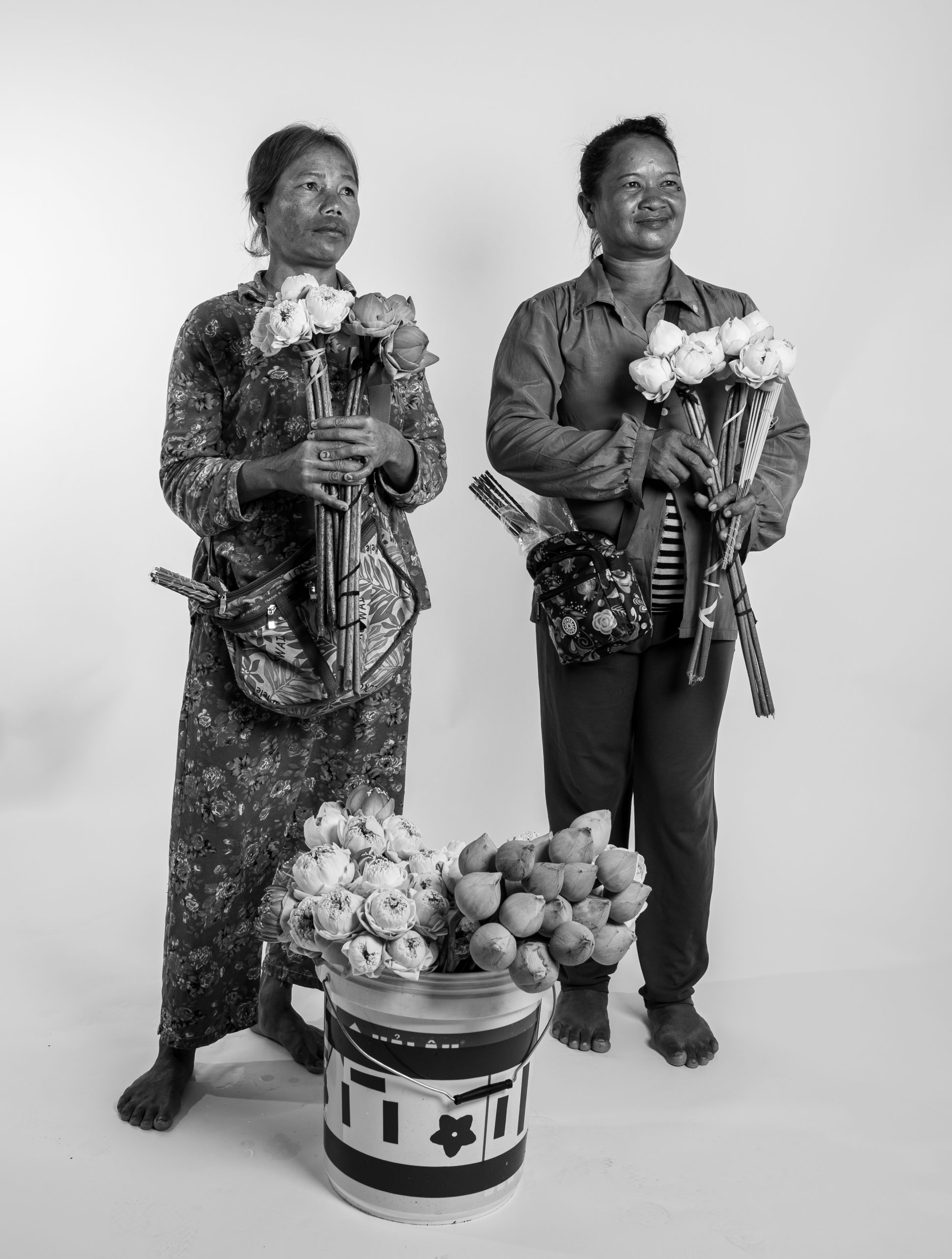
This pandemic reality was the inspiration behind a recent photography project by Cambodia-based photographers Raphael Pech and Greg Mo, whose portraits spotlight the overlooked workers carving out their living on the capital’s streets.
“This series is to honour everyday people. They tend to be almost invisible and insignificant in Cambodian society,” Pech told the Globe. “They deserve light and to be honoured as an important part of informal activities that help so many people to survive in Cambodia.”
Called Irving Penh, the project’s name is a play on renowned American photographer Irving Penn, famous for his stark portraits in which he rejected ornate backgrounds and placed his subjects at the centre of the viewer’s gaze.
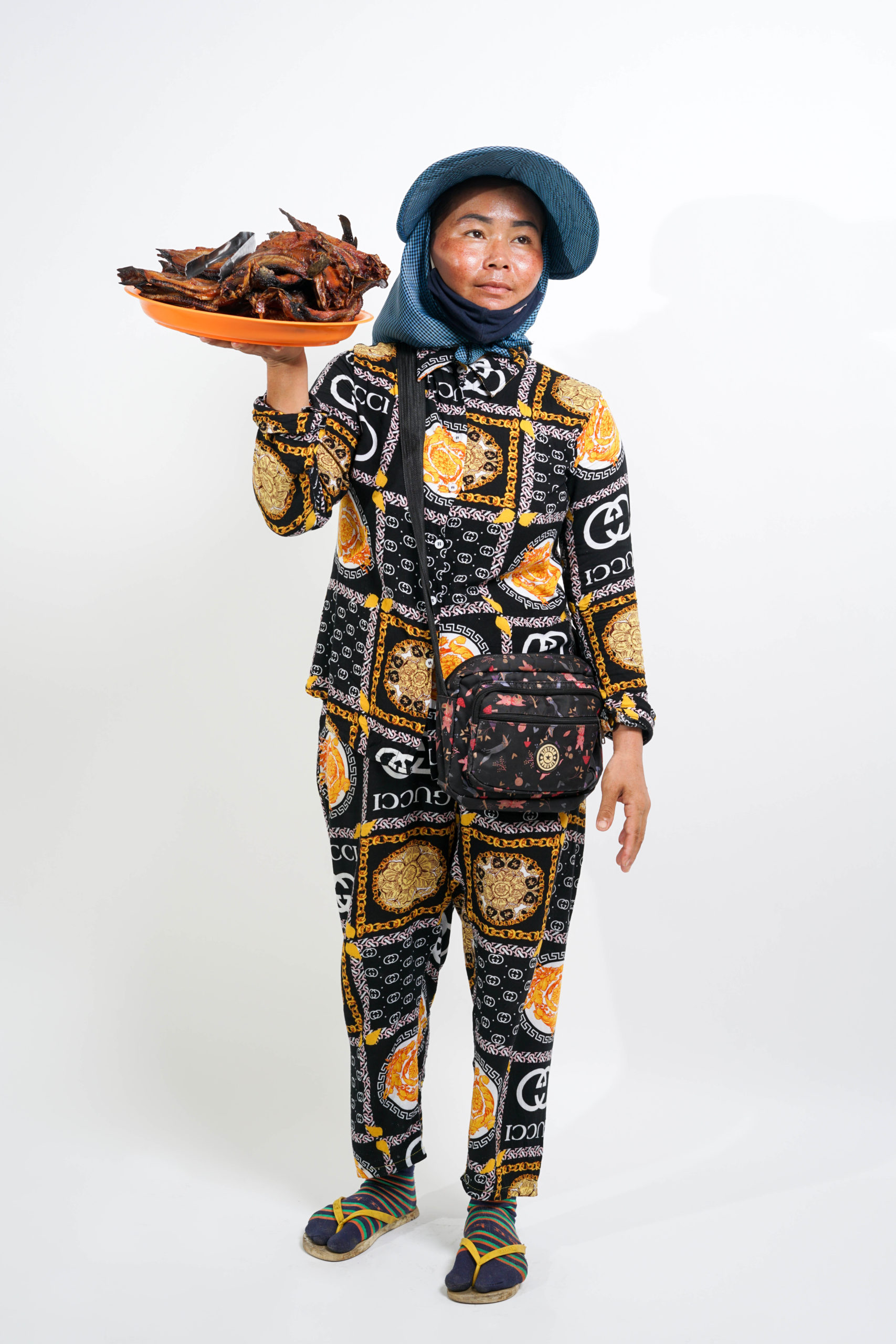
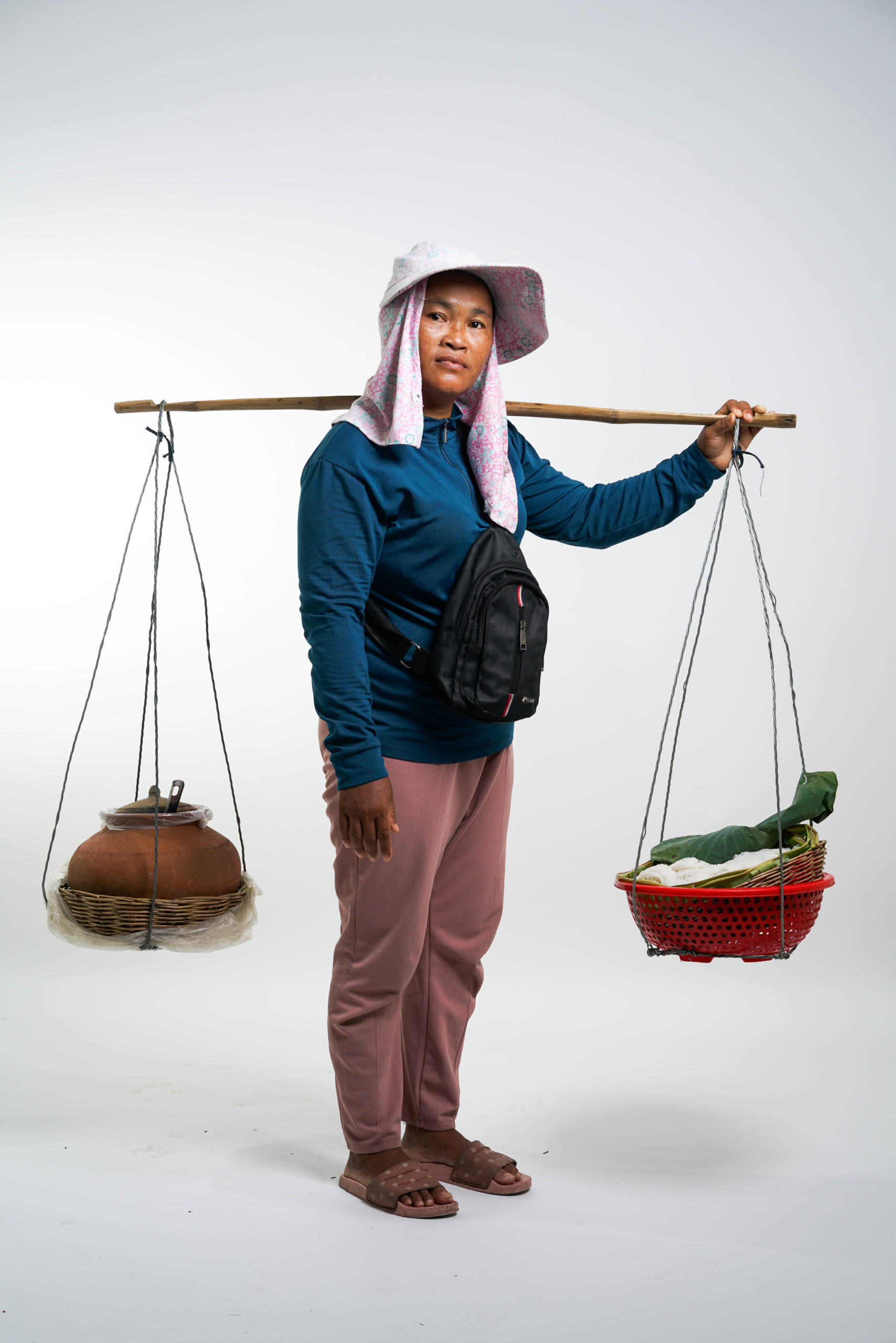
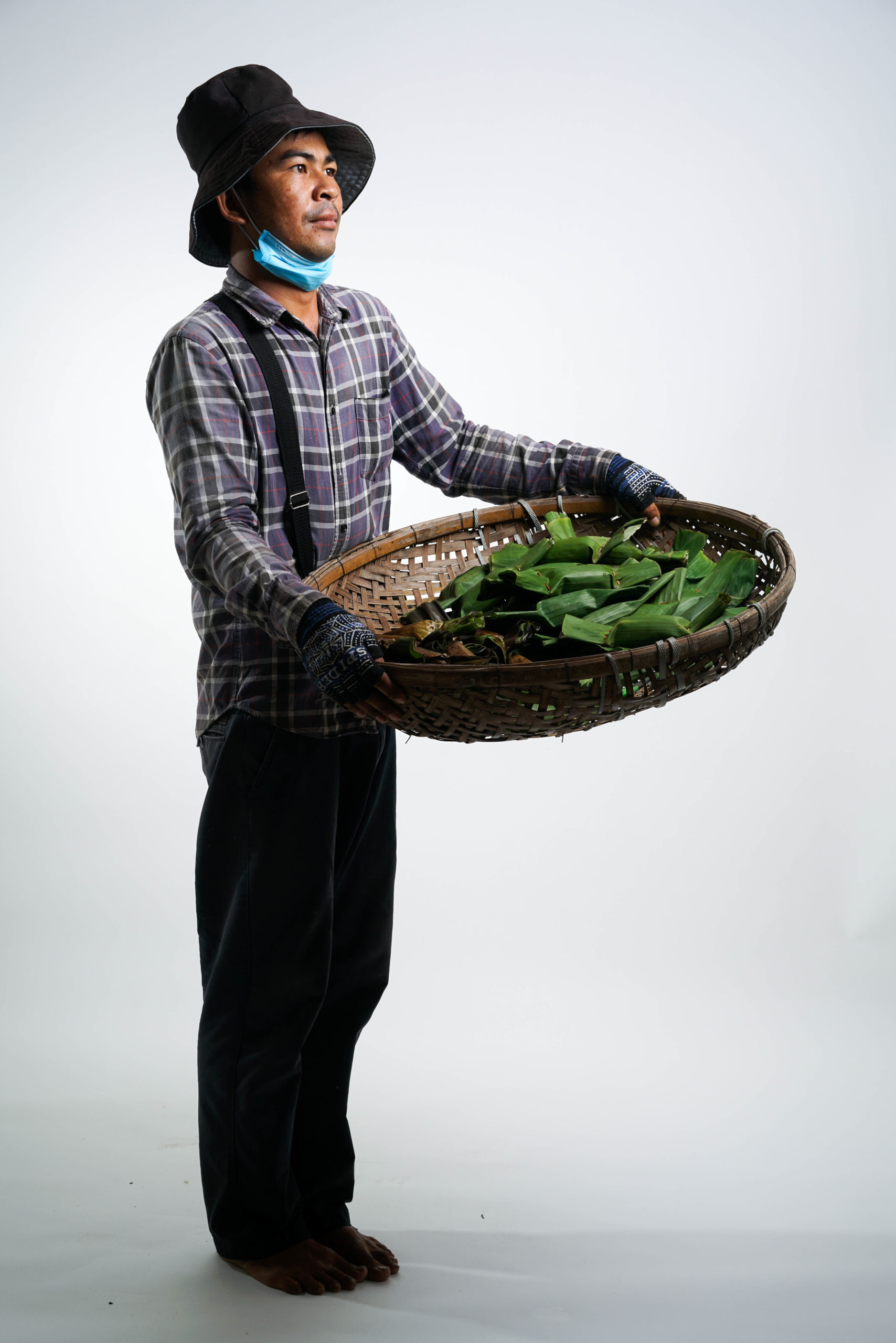
In a similar fashion, Pech and Mo created a makeshift photography studio in the Riverside district of the capital – a plain white backdrop placing the sellers front and centre.
“We paid a small amount to ask them to come into our studio as they were giving up their time,” said Mo, a French photographer and resident of Phnom Penh. “To take these photos in the studio, you give more attention to the individual. You see the person, it is more powerful than to see them in the street.”
The result is transformative – the sellers and their goods given a new vibrancy in their removal from the diluting effect of their usual dynamic Phnom Penh backdrop.
Gucci-clad 33-year-old Srey Da from Prey Veng province, her gold outfit clashing with the red dried fish she sells. 25-year-old Sophy, a seller on the riverside for three years, his basket of grilled banana and cakes wrapped in vibrant-green banana leaves. Others, like sugarcane seller Pisey and Srey Neang, mounted on her bicycle, have brought their tools of the trade inside the studio.
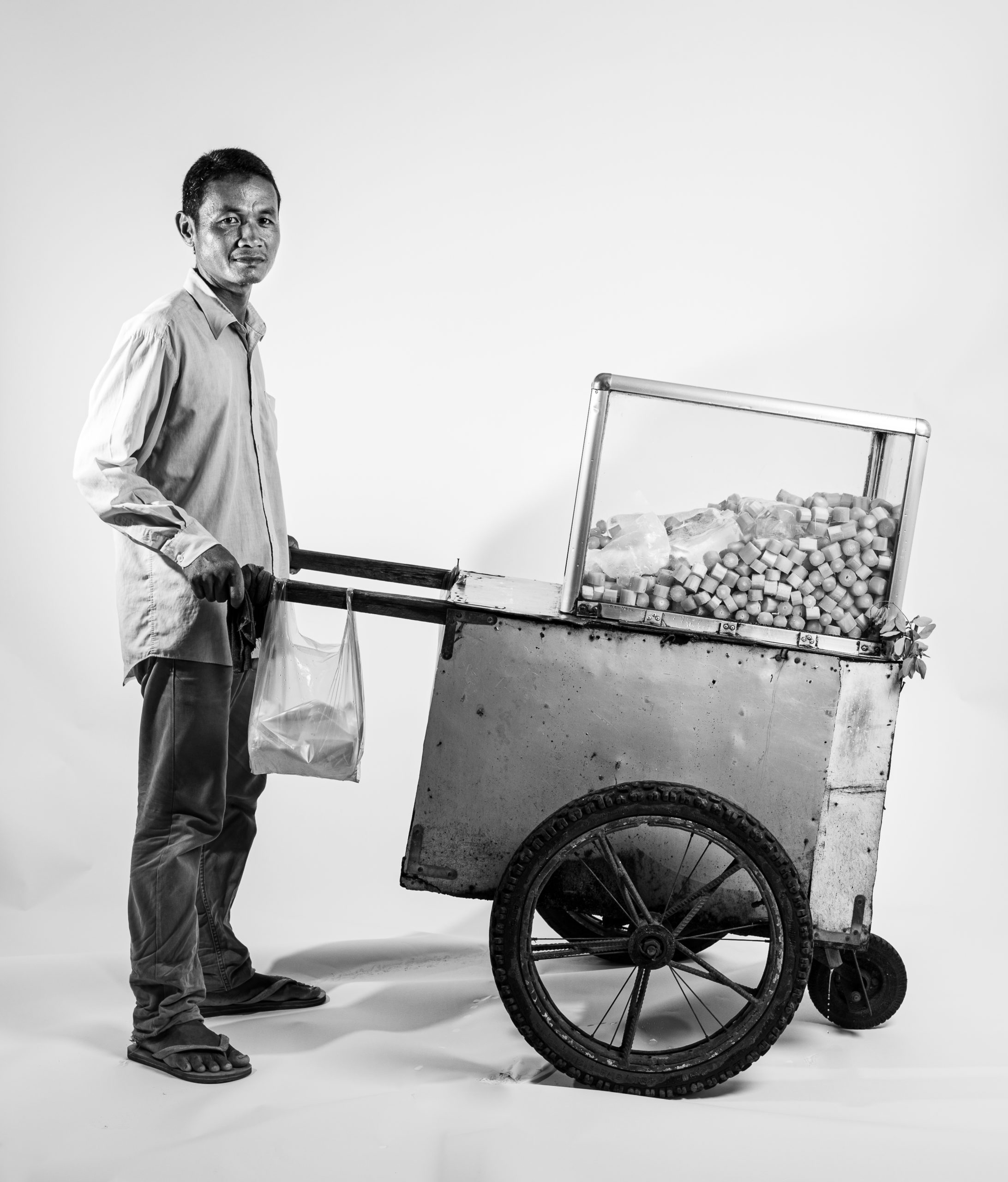
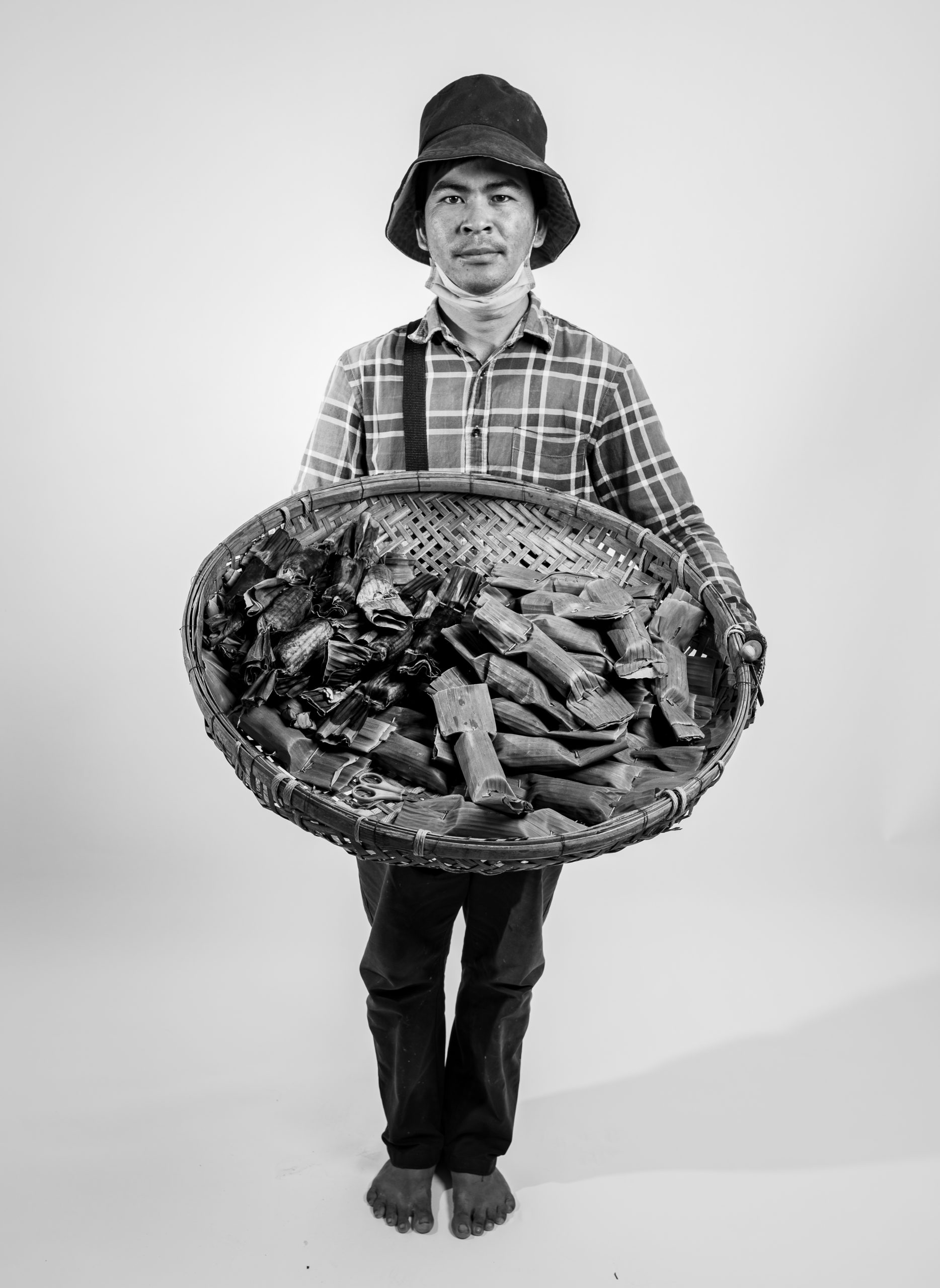
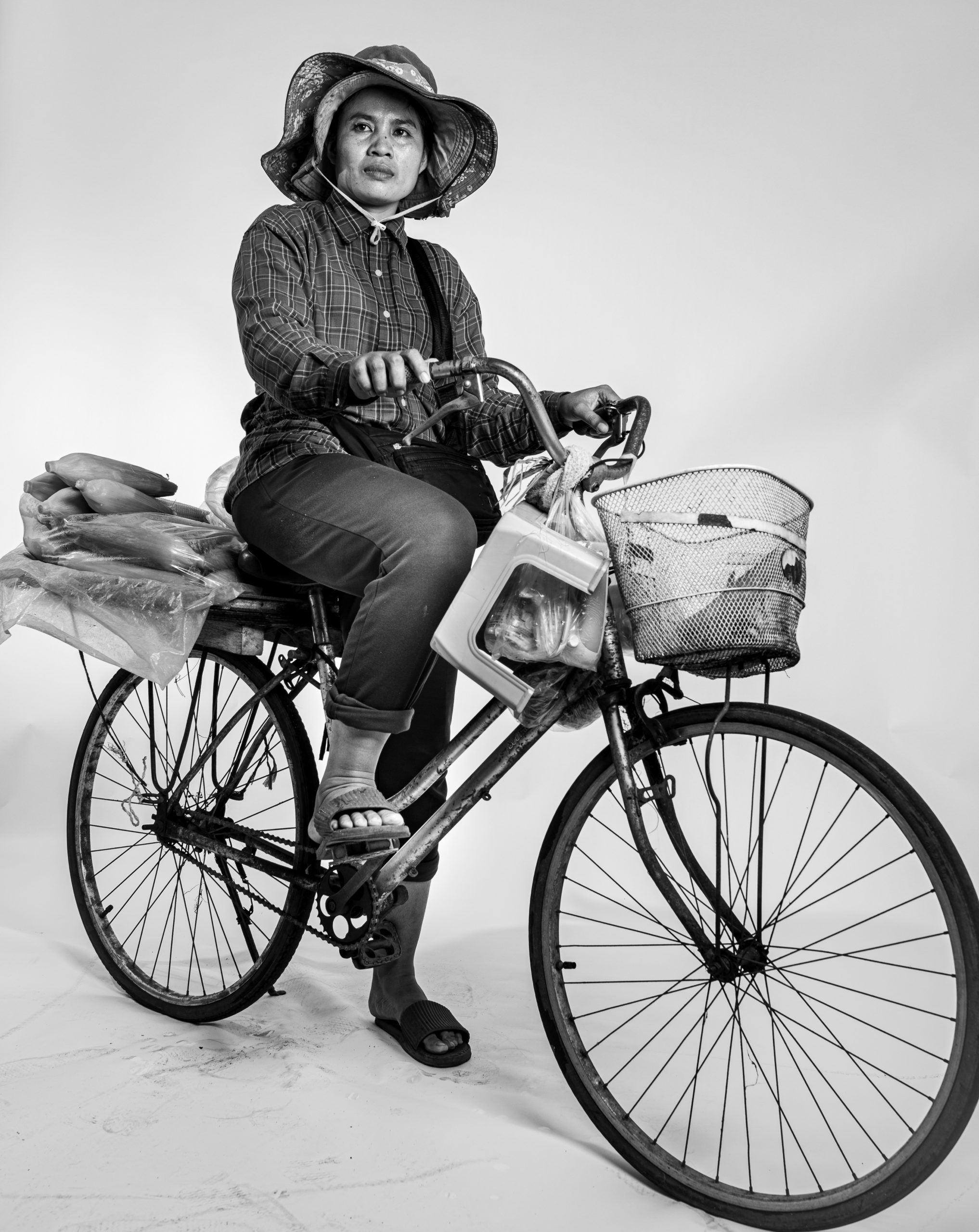
Pech’s images, distinct from Mo’s in that they are shot in black and white as he himself is colourblind, are part of a longer-running project.
The son of a French mother and Cambodian father, Pech first returned to the Kingdom in 2001 in search of familial ties, lost after decades of war and strife, as well as the passing of his father as a boy.
Today, he regards his documentation projects as part of an ongoing “identity quest through photography”, in which he can reconnect with his heritage.
“I’ve been completely disconnected with the Cambodian diaspora, so I grew up with a lot of identity issues,” he said. “Photography has been a therapeutic way for me to connect with my Cambodian identity. I’m only working to show the world the beauty of Cambodian people.”
Raphael Pech’s Instagram can be found here, while Greg Mo’s portfolio of work can be found here and his Instagram here.

